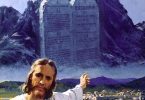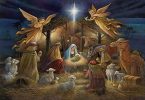15th Sunday of Ordinary Time (Year B)
Scripture: Am.7: 12-15; Ps. 85: 9-10, 11-12, 13-14; Eph.1: 3-10; Mk.6: 7-13
Last week, we witnessed the death of a modern-day saint, martyr and prophet. 5 July 2021 will be remembered in the history of India for the death of Fr. Stan Swamy, the modern-day martyr and prophet. He was accused in the Bhima Koregaon case by the National Investigative Agency of India and was put in prison under the draconian UAPA law. He was in prison for nine months and India’s oldest person to be accused of terrorism. He was denied bail twice. He was even denied a sipper, besides good medical support at the beginning. The charge was on him that he was part of a group that had planned to overthrow the Government and kill the prime minister. Sadly, he died just before his third bail hearing.
Fr. Stan was working in Jharkhand among the Adivasis. The ruling government was taking the land of Adivasis under the name of development. Thousands of Adivasis were put behind bars for their dissent. Fr. Stan stood with them. He questioned the government. He was accused of being a supporter of Maoists. He said, if you question the development, you are called anti-development, which is equal to anti-government and being an anti-national.” What an irony in his case; he passed away when the Bombay High court was about to hear his bail appeal. God bailed out Fr. Stan from this draconic world which has lost a sense of justice.
The death of Fr. Stan invites us to recall to our minds that we too are called to be prophets in our times. Last Sunday, we heard how the prophet Jeremiah, St. Paul and Jesus were rejected by their listeners because they challenged them to amend their lives. The people gave lame excuses and turned deaf ears to them. The theme of being prophets continues even this Sunday and the message becomes profound in the context of Fr. Stan’s death. God wants us to be prophets in our times.
Prophet Amos who was lived 700 years before Christ, was called to preach in northern Israel. The Kingdom of Israel was divided. The northern kingdom was called Israel and the southern kingdom was called Judah. They worshipped God in their sanctuaries. The northern kingdom had it at Bethel and the southern kingdom had it in Jerusalem. There were many priests serving at Bethel. The sanctuary was governed by rich and royal families. He was called to speak against the neglect and exploitation of the poor by the powerful. He pointed out to them the corrupt practices at the sanctuary. Amos foretold the destruction of Israel and the sanctuary. Amaziah, the high priest rebukes him and ignored the warning that the king planned to kill him. He tells him to go down to Judah, his country to earn his bread by preaching. Amos tells him that he was called by God to be a prophet. He never wanted to be one, he was a farmer, he was not from the family of prophets, he was least interested in the prophecy. Amos realized that God called him to be a prophet in his own times.
Jesus was the fulfilment of all the prophets of the Old Testament. He preached like Amos against the injustice done to God and his people. He chose to be with the poorest of the poor, the marginalized, the neglected. He exorcised the demonic and healed the paralytics and the chronic sick who were looked down on. He forgave the accused who were shunned by society. He wanted his disciples to have the experience of being prophets before his eyes. He asked them to preach repentance, the core message of the kingdom. It succeeded with healing and exorcism. It is interesting to note that Jesus told them not to carry bags, money, belt and extra tunic. It shows that Jesus asked them to be non-violent, vulnerable, hospitable and inter-dependable. In today’s Gospel passage, I focussed on the keyword “called”. Jesus called the twelve and began to send them.
Jesus has also called us to be prophets. St. Paul tells us in the second reading that God has chosen us in Jesus Christ before the foundation of the world. God wants us to be holy and blameless before him. In other words, he has chosen us to be prophets. We are called to be prophets by the virtue of our baptism. Fr. Stan realized it. He became the prophet in Jharkhand to fight against the injustice inflicted on Adivasis in the name of development.
The message of the Prophet Amos, Jesus and St. Paul still resounds in our ears. It is not only the message but their very life became the witness. When life becomes the message, it has lasting effects. It is the same with Fr. Stan Swamy. Fr. Stan lives forever even after his death. Therefore, St. Pope John Paul II says, “Modern men and women listen more readily to witnesses rather than teachers. If they listen to teachers, it is because they are witnesses.” (Evangelium Nuntiandi, No. 19). God calls us to be prophets. Are we ready to stand like Stan?






